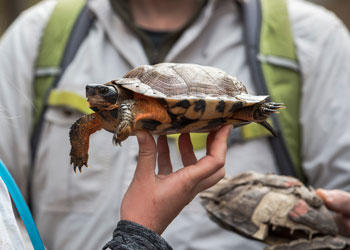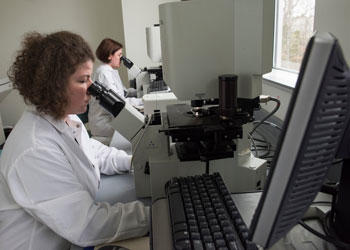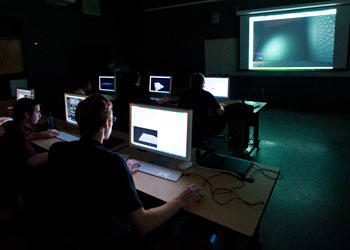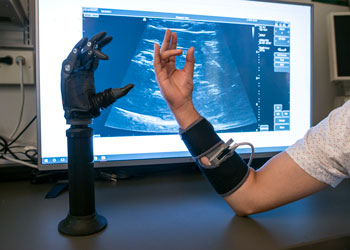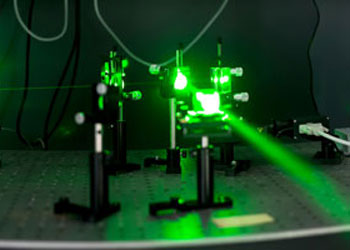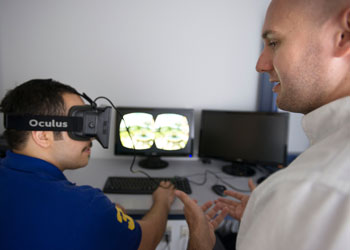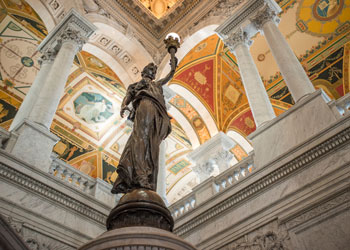George Mason's commitment to research goes beyond the work of individual faculty members. The university and its partners invest in research centers and institutes that excel at focused and multidisciplinary studies, working together to solve global problems. We study, analyze, and develop knowledge in a variety of fields, using collaboration and communication to help generate discoveries.
Institute for a Sustainable Earth
The ISE conducts integrative research in the natural sciences, social sciences, computational and data sciences, engineering, and humanities while bridging disciplinary gaps to realize innovative advances in an era of rapid global change.
Institute for Biohealth Innovation
IBI works with collaborators both within the university and externally. Areas of study include cancer, infectious diseases, brain and behavior, injury and performance, policy, economics, reproductive and family health, and cardiovascular and metabolic issues.
Institute for Digital InnovAtion
At IDIA, entrepreneurs, researchers, technologists, and business leaders will join more than 300 George Mason faculty and their research staff and students in driving innovation in the digital economy and collaborating on business opportunities.
Center for Adaptive Systems of Brain-Body Interaction
CASBBI pursues transdisciplinary research to understand the complex adaptive systems underlying human movement and behavior. Our research aims to enable those with chronic disabilities to fully participate in daily activities and lead full lives.
Criminal Investigations and Network Analysis
CINA is a George Mason-led multidisciplinary academic consortium that pursues innovative strategies and solutions to advance criminal network analysis, forensics, and investigative processes. It's a Department of Homeland Security Center of Excellence.
Quantum Science and Engineering Center
QSEC advances transdisciplinary quantum technologies and trains the quantum workforce. Research areas include nonclassical algorithms and computing, quantum material growth and characterization, and quantum-sensing technologies and devices.
Center for Advancing Human-Machine Partnership
Humans and machines must communicate seamlessly in a collaborative framework of trust and ethical conduct. CAHMP works to restructure and optimize reciprocal relationships between humans and assistive computing systems.
Center for Resilient and Sustainable Communities
As pressures from migration and climate change accelerate natural and manmade disasters, George Mason's trans-disciplinary C-RASC aims to help communities with rebuilding, as well as with preparations to prevent damage.
Center for Humanities Research
CHR fosters innovative, consequential research in the humanities and humanities-related disciplines, promotes the humanities' value as a public good, and enhances the work's visibility and impact. CHR will also be a research incubator, providing scholarly support and funding.


Guidelines for Establishing College/School Research Centers
Read the guidelines (PDF)
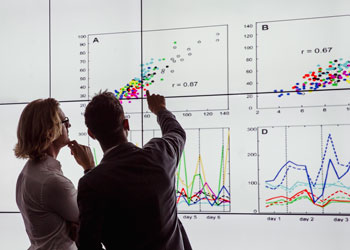
Guidelines for Establishing and Managing University Research Institutes and Centers
Read the guidelines (PDF)
Research News
- May 29, 2025
- February 10, 2025
- October 9, 2023
- August 23, 2023
- November 2, 2022
College-Affiliated Centers
George Mason's schools and colleges support many centers conducting specialized research.
College of Education and Human Development: Areas of study include education, digital media, sports medicine and management, and improving the lives of those with disabilities.
College of Health and Human Services: Areas of study include health informatics, ethics and policy, and chronic illness.
College of Humanities and Social Sciences: Areas of study include immigration, public policy, climate change, and criminal justice.
College of Science: Areas of study include molecular medicine, geospatial intelligence, biodefense, and the environment.
College of Visual and Performing Arts: The Center for Arts and Wellness makes health education an integral part of students' lives.
Schar School of Policy and Government: Areas of study include intelligence, medical policies, and the economy.
Carter School for Peace and Conflict Resolution: Areas of study include gender issues, peacemaking, and religion.
Donald G. Costello College of Business: Areas of study include government contracting, entrepreneurship, and consumer protection.
Volgenau School of Engineering: Areas of study include transportation, secure information systems, and C4I and cyber.
Antonin Scalia Law School: Areas of study include national security, intellectual property, constitutional freedoms, privacy, and economics.
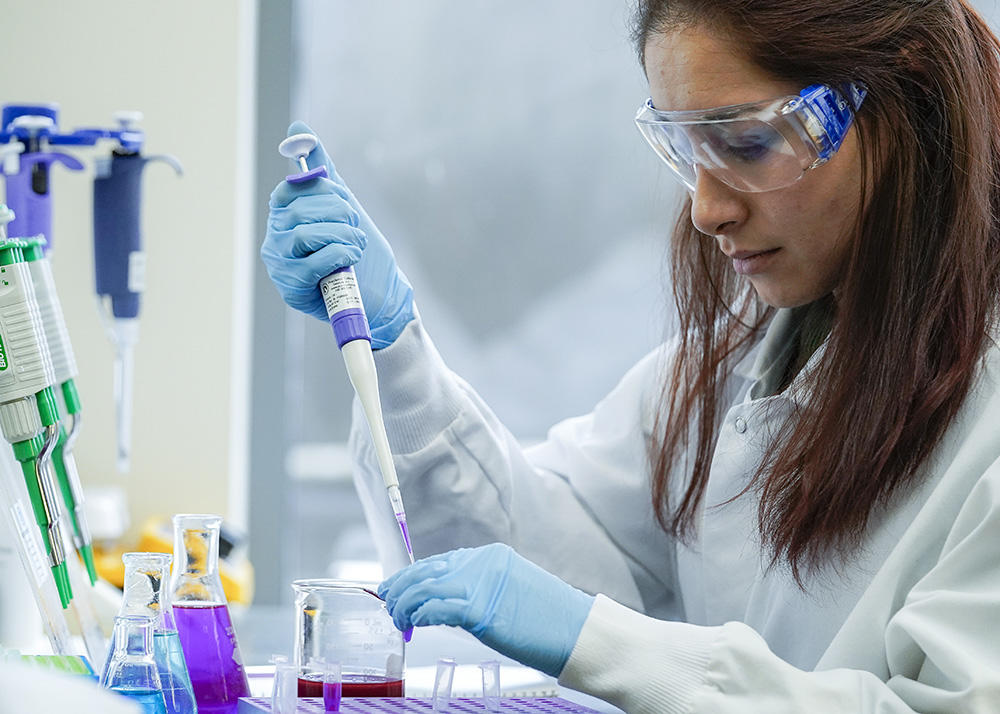
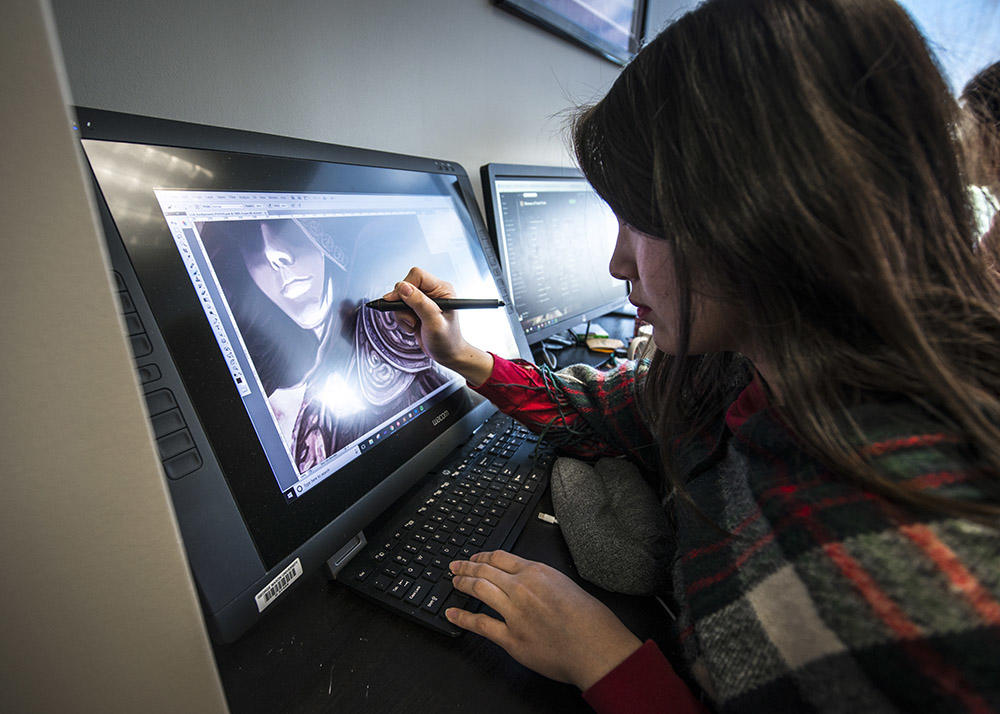
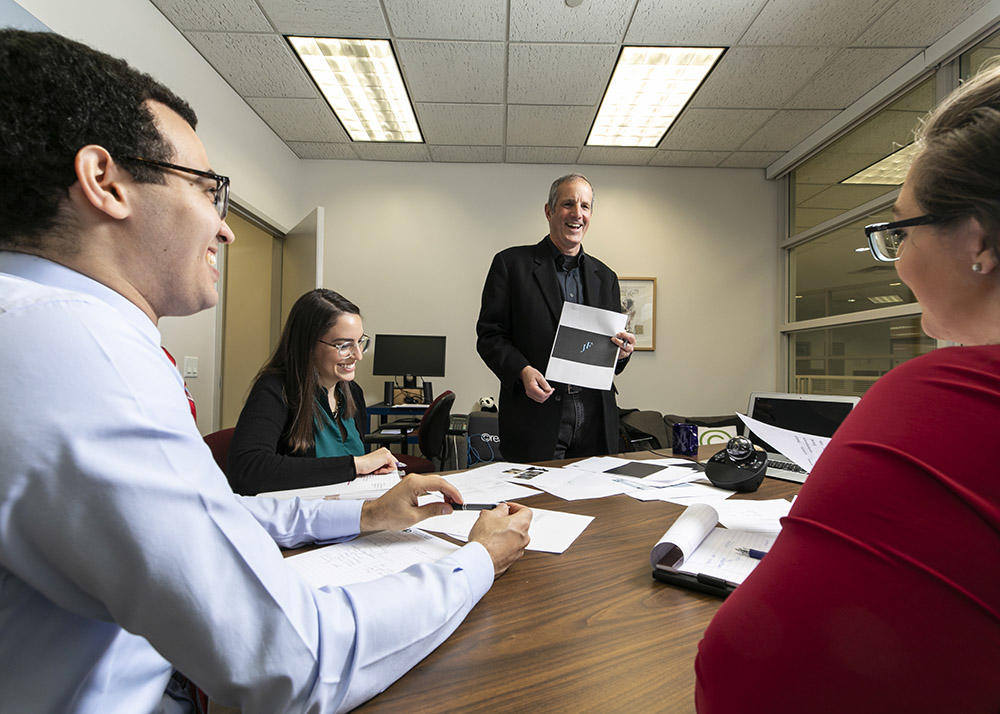
George Mason-Affiliated Centers and Institutes
Some external research groups are affiliated with the university, with George Mason faculty working with their teams. They include:
- Center for Media and Public Affairs: This nonpartisan research and educational organization conducts scientific studies of the news and entertainment media.
- Institute for Humane Studies: This organization champions classical liberal ideas and the scholars who advance them.
- Mercatus Center: This organization provides market-oriented ideas to bridge the gap between academic ideas and real-world problems.

